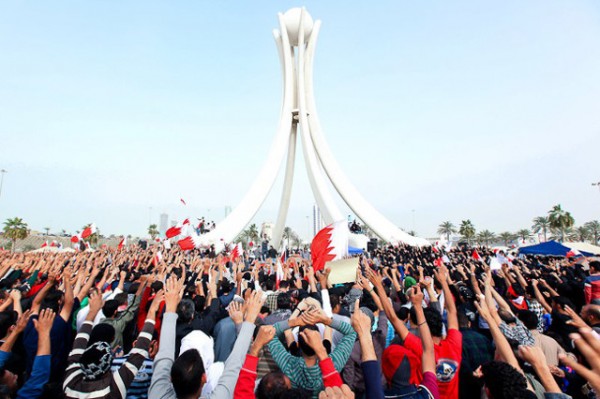by Shireen T. Hunter
Only a few short months ago, Saudi Arabia executed the Shia cleric Sheikh Nimr Al Nimr, and the Nigerian military killed hundreds of the country’s Shia and severely wounded their leader Sheikh Ibrahim Yaqoub Zakzaki. Now, Bahraini authorities have stripped one of the principal leaders of the Bahraini Shia, Sheikh Isa Qasim, of his citizenship. The reasons cited for this action have been the usual ones, namely charges of trying to undermine the government, sow sedition and discord in the country, and of course serve as an agent of Iran.
However, some Shia sources in Iraq have speculated that the real reason behind this latest action against Shia clerics has been Saudi Arabia’s anger at the success, albeit as of yet incomplete, of Iraqi forces pushing Islamic State forces out of Fallujah. According to these sources, Bahrain does very little without Saudi instruction.
If these speculations are correct, then Bahrain’s action could also be read as another Saudi effort to provoke Iran into taking some immoderate action, or at least to make statements that would not sit well with Western capitals and could be used to undermine the trend towards Iran-Western reconciliation. If this were their purpose, the Bahrainis and their Saudi patrons succeeded.
The famed commander of Iran’s equally famous Quds Brigade, Sardar Qasem Soleimani, in an intemperate tone warned Bahrain’s leaders of the consequences of their hostile actions towards the country’s Shia population. Other Shia clerics both in Iran and Iraq, as well as in Lebanon, also condemned the actions of the Bahraini authorities. Muqtada Sadr, who in his heart sees himself as the rightful leader of the world’s Shia and considers Najaf as the proper seat of Shiism, called for mass demonstrations to protest the withdrawal of Sheikh Qasim’s citizenship.
In reality, however, statements of both Iranian personalities and religious leaders of Iraq are more signs of weakness than strength. As demonstrated during Bahrain’s uprising, which led to military intervention by Saudi Arabia and the UAE in the island nation in March 2011, neither Iranian nor Iraqi Shia could do much to help their co-religionists. If Iran were to help Bahrain in any meaningful way, it would have faced the political and military ire of not only the Persian Gulf Arabs, but also that of America and, at least, Great Britain. It could have risked a full scale attack on its territory. The continued risk of an attack on Iran may indeed be why the Saudis and their Bahraini clients keep trying to provoke Iran into taking actions or making self-damaging statements. Failing that, the Saudis and their allies would like to demonstrate to everyone in the region that Iran is all talk and no action and that they should follow Saudi Arabia’s lead in dealing with Iran.
But the question of the plight of the Shias worldwide goes deeper than the issue of Iran and Saudi Arabia and their rivalry in the Persian Gulf and beyond. At the heart of the Shia’s problems is the fact that the international community has closed its eyes to the massive and systematic violation of their most basic rights by countries such as Saudi Arabia and Bahrain and by Sunni extremist groups. For example in 1988, no international outcry accompanied the Taliban’s massacre of 8,000 Hazara Shias in Afghanistan. For the past two decades, the Shia have been killed regularly in Pakistan. The government has done nothing to prosecute their killers—who are nearly all Sunni extremists—because it uses them as instruments of its foreign policy. Thus far, the Pakistani government has not paid any price for this systematic disregard of the rights of its Shia citizens.
The international community has neglected Shia rights in part because of their image as blind instruments of Iran and its regional policies. And because Iran’s relations with important members of the international community and, most important, the United States have been tense, the Shia have suffered from this image and their Iran connection. The Shia have also suffered from the fallout from events in Lebanon and the Hezbollah factor. Another reason, has been the spread of Wahhabism with its viscerally anti-Shia tendencies. Before the Soviet-Afghan wars opened the road to Saudi Arabia’s widespread influence and activities in Pakistan, there were no killings of the Shias. The same was true of Afghanistan.
More importantly perhaps, key international actors have overlooked these transgressions in the name of containing Iran. Yet the idea that Iran is the puppeteer and the Shia are mere puppets, in addition to being insulting to the latter, is incorrect. If the Shia feel a certain attachment to Iran, which existed even during the monarchy, it’s because of their religious faith and their treatment as less-than-full citizens by their own governments.
For example, Saudi and Bahraini Shias do not need Iran to point out to them their inferior status in their respective countries and the contempt that their leaders have for them. Nor do they need Iran’s encouragement to fight for their rights. Therefore, If the Saudis, Bahrainis and others are concerned about their Shia populations’ attraction to Iran and want to reduce Iran’s influence among them, they should try to treat them as full citizens and thus give them a stake in their respective countries’ well-being and stability. Executing clerics or stripping them of their citizenship is not the answer.
The international community, too, should protect the Shias’ rights both to prevent their potential radicalization and also to keep its moral standing on matters of human rights. This protection should go beyond mere expressions of concern and regret. In short, the Shias should not pay the price of either Arab-Iranian competition or Western-Iran differences and animosities.
Photo: Bahraini protesters in 2011.






hi
thatUs very important and correct.